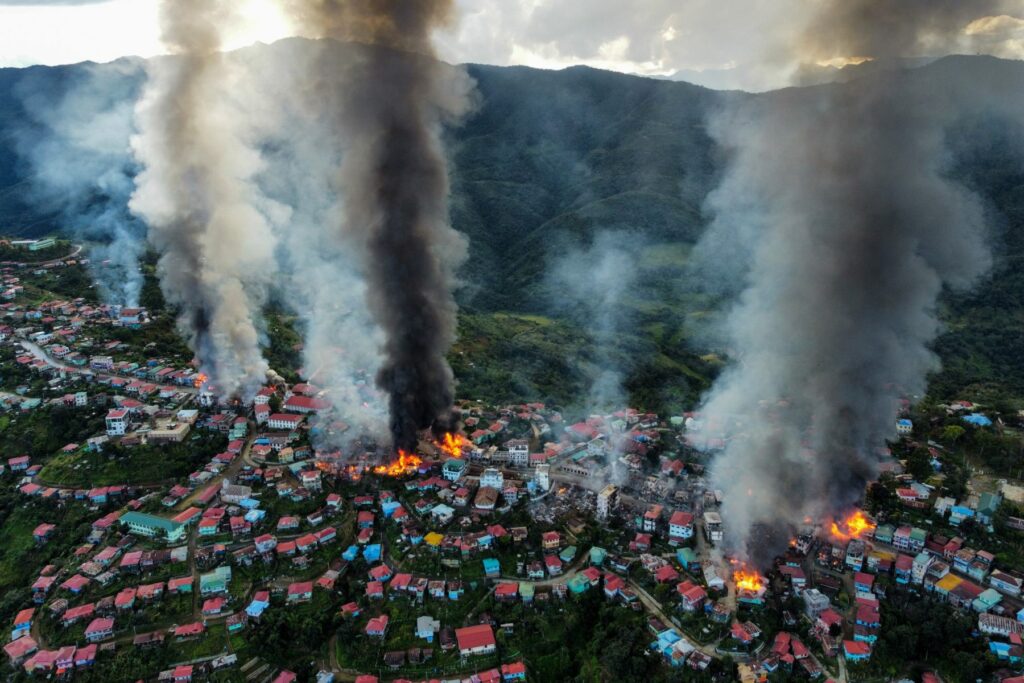Myanmar’s military escalated its use of mass killings, air and artillery strikes in the past year as it struggles to crush resistance to its coup, the UN’s rights office said on Tuesday.
The military’s ousting of Aung San Suu Kyi‘s government in 2021 sparked a huge backlash and it is now battling opponents across swaths of the country.
The Office of the High Commissioner for Human Rights (OHCHR) had found a “seemingly endless spiral of military violence” between April 2022 and July 2023, it said in its latest report on Myanmar.
Through interviews and open source data it had found “a sharp rise” in serious human rights violations “including the increase… of incidents in which 10 or more individuals were killed.”
Investigators had now documented 22 instances of mass killings of 10 or more people, according to rights chief Volker Turk.
The OHCHR cited an air strike on a gathering in a village in an opposition stronghold last April it said killed about 150 people, and the bombing last October of a rebel-held concert in northern Kachin state that killed dozens.
Soldiers had repeatedly carried out rapes and extrajudicial killings of men, women, and children in villages suspected of harboring or supporting anti-coup fighters, according to the OHCHR.
Some troops had displayed “beheaded or otherwise defiled corpses” in order to terrorize local residents, the OHCHR said, echoing reporting by local media and a conflict monitoring group.
Junta troops had also torched nearly 24,000 houses and buildings since the beginning of 2023 as part of a “four cuts” strategy to deny its opponents access to food, funds, intelligence, and recruits, it said.
The junta has previously denied media reports and eyewitness accounts that its troops have torched villages, blaming anti-coup “terrorists” for the blazes.
More than 24,000 people have been arrested during the military’s sweeping crackdown on dissent, according to a local monitoring group.
The OHCHR said it had regularly received “reports of torture, sexual violence, and deaths in prisons or during prison transfers.”
Anti-coup fighters had also committed rights violations through targeted killings of civilians linked to the junta, the OHCHR said.
But it said “their scale and intensity cannot be compared to the violations committed by the military.”
Diplomatic efforts to end the conflict led by the United Nations and the Association of Southeast Asian Nations regional bloc have stalled, with the military refusing to engage with its opponents.



